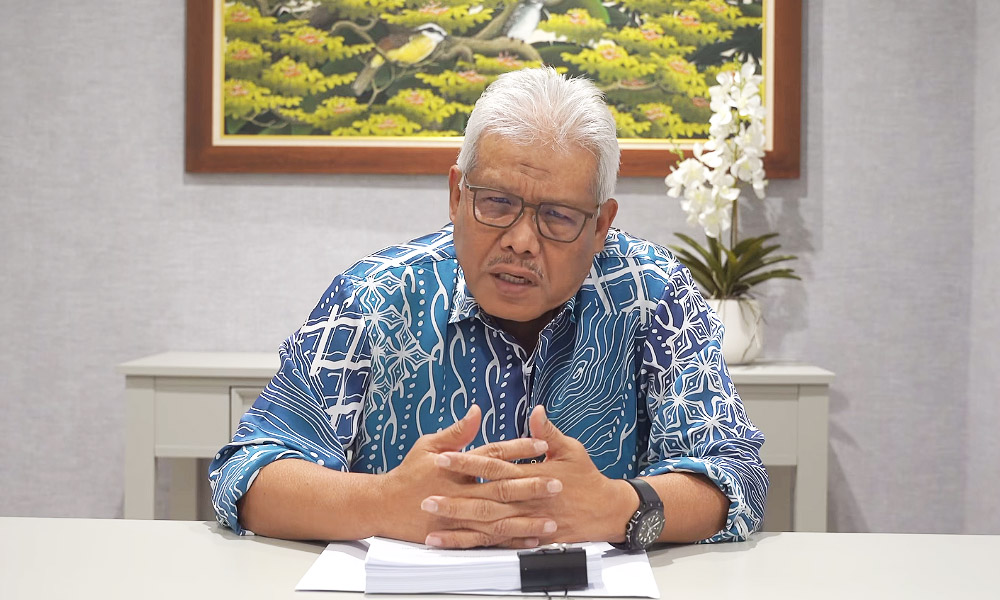LETTER | Upcoming 6 state elections not referendum against federal govt
LETTER | Chants of “referendum” rang out at a ceramah in Kampung Labu Lanjut as Perikatan Nasional (PN) continued to cast the six state elections as a plebiscite on the federal government’s performance.
In his speech, PN secretary-general Hamzah Zainudin called for Prime Minister Anwar Ibrahim to step down.
“This government is a failure. We call this the rakyat’s referendum struggle,” he said.
Hamzah then led the audience of about 150 people to chant “referendum” three times in a fashion that echoed PKR’s cry for reformasi.
Are the upcoming six state elections a referendum on the federal government?
A referendum, according to the Oxford English Dictionary is a process of referring an important political question (e.g. a proposed constitutional change) to be decided by a general vote of the entire electorate.

An electorate is all the people in a country or area who are entitled to vote in an election.
A referendum is therefore, a general vote by all the people in a country entitled to vote on a single political question that has been referred to them for a direct decision.
If a country holds a referendum on a particular political question, it is asking the people to vote either “yes” or “no” on the question. A referendum is a vote on the question.
For the electorate, a referendum is very similar to an election. On polling day, electors go to a polling place and cast their vote on a ballot paper.
Electors can also vote early in person or by post, if they can’t go to a polling place on the voting day.
Referendums are common in some countries, and not so common in others. Switzerland, for example, has been said to have conducted over 600 national referendums.
Only two months ago, Swiss voters voted in a national referendum to introduce a global minimum tax on businesses and a climate law, aimed at cutting fossil fuel use and reaching zero emissions by 2050, public broadcaster SRF reported.
By contrast, in Canada, there have only been three referendums.
Brexit, the decision to leave the European Union (EU) by the UK, is another example of a national referendum.
Before that, there were no such referendums in the UK until 1975, when a referendum on the UK’s membership of the then European Economic Community (EEC) was held on June 5, 1975.
The other national referendum in the UK was in 2011 on the political question of whether to change the voting system used in UK parliamentary elections. The electorate was asked to vote on the proposal to switch Westminster elections from First Past the Post to the Alternative Vote.
Referendum involves the law
At the time of the 1975 referendum, there was no regulatory framework for referendums. The Referendum Act 1975 needed to be passed for the referendum.
The 2011 referendum, on the other hand, was enabled by another Act of Parliament – the European Union Act 2011.
The Act, however, does not provide for the 2016 referendum on the UK’s membership of the EU. The latter was enabled and made possible by the European Union Referendum Act 2015.
In other words, referendums must be provided for by law.
This explains why the Australian government in March took to introducing a Bill in parliament as the first formal step towards holding a referendum to recognise indigenous people in the constitution and set up an Indigenous “Voice to Parliament”, a committee that can advise the parliament on matters affecting its Aboriginal and Torres Strait Island people.
The Bill has since been passed by both houses of parliament.
A referendum will be held between October and December to recognise Aboriginal and Torres Strait Islander peoples in the Constitution by establishing an Aboriginal and Torres Strait Islander Voice.
In Malaysia, the Federal Constitution provides for elections to the federal legislature (Dewan Rakyat) and state legislature but does not provide for referendums. There is also no legislation on referendums.
The six state elections on Aug 12 are elections to the state assemblies. The elections will determine the six state governments. They are not referendums on the federal government.
So, don’t confuse the people. The duty is to inform and educate, never to confuse them.
The views expressed here are those of the author/contributor and do not necessarily represent the views of Malaysiakini.
RM12.50 / month
- Unlimited access to award-winning journalism
- Comment and share your opinions on all our articles
- Gift interesting stories to your friends
- Tax deductable
